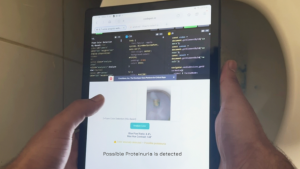
The continual collaboration between medicine and technology is rapidly turning everyday items into tools for diagnosis or treatment. Cell phones are becoming pocket doctors, as demonstrated by this glove that detects breast cancer and this app for clinicians treating HIV.
Now a consortium of researchers and industry partners from seven European Union countries are hoping to bring self-diagnoses into our homes and incorporate it into our morning shave, teeth-brushing or make-up routine with the Wize Mirror.
The mirror is a new medical innovation (currently being developed by scientists) that checks a person’s face for signs of heart disease - most notably cardiovascular and metabolic diseases. Both these diseases are not only difficult to detect but they can affect anyone, regardless of whether they live a healthy or harmful lifestyle.
What many people don’t realise is that internal health issues, like heart disease are projected on our faces without us even realising it. The Wize Mirror uses 3D scanners, multispectral cameras and gas sensors to check for signs that you could be at risk of developing heart disease.
Facial recognition software looks for the build up of fatty tissue, unhealthy facial colouring, weight loss or gain, and even certain expressions to detect signs of stress and anxiety. The gas sensors check for compounds in a user’s breath that indicate how much he or she drinks or smokes, while the multispectral cameras can estimate heart rate and haemoglobin levels.
With cardiovascular diseases, such as heart attacks and stroke, killing around 38 million people each year and claiming more lives than all forms of cancer combined, the Wize Mirror could turn vanity into a life saving necessity. The mirror will do the full scan in just 60 seconds.
The Wize Mirror is not yet ready for public use, but from the beginning of 2016 researchers will begin clinical trials in Italy and France in order to get an accurate comparison between traditional diagnostic methods and a Wize Mirror reading.





